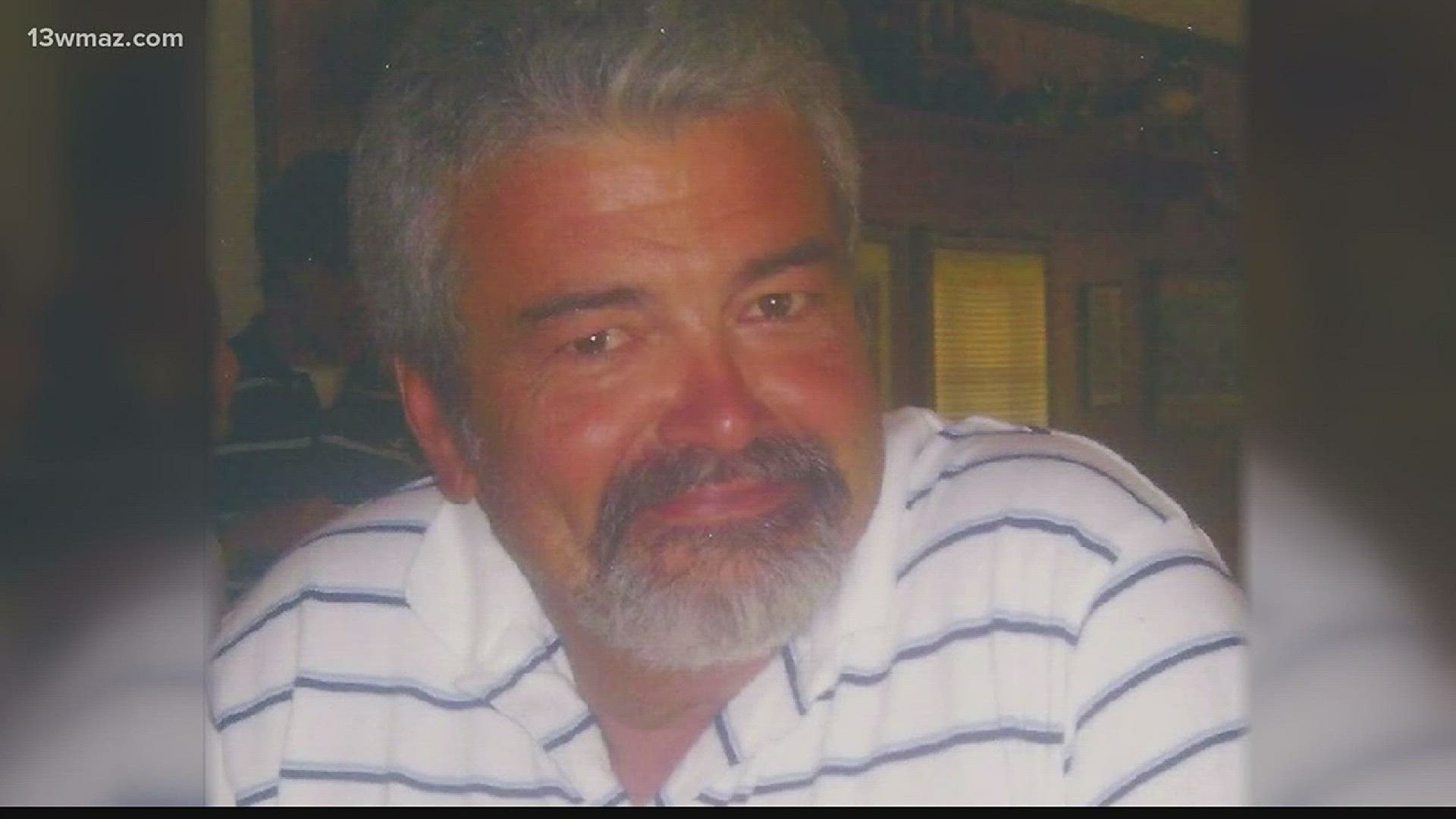A Laurens County investigator may have lied and omitted key facts more than a dozen times when he applied for the search warrant that led to the shooting death of David Hooks.
Federal Judge Dudley Bowen details investigator Christopher Brewer's statements in Monday's order that says the lawsuit by Hooks' widow can go forward.
Bowen's order begins:
"On Sept. 24, 2014, Sheriff's Deputies with a search warrant forcibly entered the rural home of David and Teresa Hooks at 11:00 p.m. where they shot and killed David Hooks as he ran naked, holding a shotgun by his side."
Teresa Hooks' wrongful-death lawsuit argues that the search warrant and drug raid were both illegal and never should have happened.
Laurens investigators and a follow-up investigation by the GBI found no drugs or meth paraphernalia at the Hooks' home.
Written mostly in dry legal language, Bowen's order does not flatly state that Brewer or then-Sheriff William Harrell lied before or after the raid.
But Bowen raises many questions about their credibility that, he says, a jury should decide.
The drug raid was based largely on Brewer's conversations with Rodney Garrett, a burglary suspect who said he stole 20 grams of methamphetamine from a pickup on Hooks' property.
Brewer used Garrett's statements and a 2009 tip from another man to get a search warrant on the night of the raid. A key point in the lawsuit is whether Brewer and Harrell followed proper procedures and had evidence of crimes at the Hooks home.
But citing Brewer's own sworn statements, the judge lists at least 15 instances where the investigator apparently lied or left out important facts in his warrant application to a magistrate judge.
For example, he wrote:
- Brewer failed to mention Garrett's criminal history, that he was a regular meth user, and that he admitted smoking meth "before, during and after" burglarizing Hooks' property.
- Laurens County officers knew that Garrett was under the influence of meth when he was interviewed, had not slept in seven to 10 days and had a history of lying to law enforcement and his own family, the judge wrote.
- Brewer also failed to tell the magistrate judge that Hooks himself had reported the burglary on his property and met with officers there the day before the drug raid.
- Bowen also wrote that Brewer had exaggerated the 2009 tip, from a man who claimed he sold meth to "Hooks and other well-to-do businessmen, judges and attorneys in the greater Dublin area."
That man's statement was never corroborated, even though Brewer and others investigated the case for more than two months, and the sheriff's office never opened a case file on Hooks, Bowen wrote.
"A reasonable fact finder could easily conclude," Bowen wrote, " that Brewer embellished, distorted or otherwise supplied false (incriminating) facts and disregarded, ignored or otherwise omitted" facts favorable to Hooks.
If a jury discounts the investigator's statements to the judge, Bowen wrote, "Defendants Brewer and Harrell had only the uncorroborated word of a known liar and car thief to put methamphetamine and other evidence of drug activity home of David Hooks.
"No reasonable officer in the same circumstances and possessing the same knowledge could have believed probable cause existed to support the search warrant," the judge wrote.
Evidence also shows that Sheriff Harrell knew about Brewer's false statements, was involved in getting the search warrant and "knew Defendant Brewer was acting unlawfully and failed to stop him from doing so," Bowen wrote.
"The facts support a conclusion that Defendants Brewer and Harrell violated the Fourth Amendment in obtaining and/or executing the search warrant," he wrote.
While Harrell, Brewer and third defendant, deputy Steve Vertin, may dispute all those facts, Bowen wrote, it's up to the jury to weigh their credibility.
For example, Bowen wrote, jurors may "attach critical importance" to Harrell's motives in "gratuitously publishing false statements of DNA evidence purporting to link David Hooks to the methamphetamine found in possession of Rodney Garrett."
Teresa Hooks is suing the three men for wrongful death and for false imprisonment on the night her husband was killed.
The lawsuit argues that the raid itself was "unprofessional" and incompetent.
Although the magistrate authorized a "knock and announce" warrant, the suit says, officer burst in the back door and began firing through the floor, walls and ceiling.
The couple, whose home was burglarized the night before, did not realize at first that the "gang dressed in dark hoods" were officers, the Hooks suit says.
Deputies fired 23 shots inside the house, three of them hitting Hooks, the suit says. One of them struck Hooks when he was on the floor, according to the suit.
The lawsuit argues that the sheriff's office violated the couple's civil rights, caused them both pain and suffering, and caused Hooks' wrongful death. Harrell had "personal resentment" against David Hooks and planned to use the raid to seize his assets, according to the lawsuit.
Teresa Hooks is asking for a trial on the case and says damages should set at trial.
No trial date has been set.

